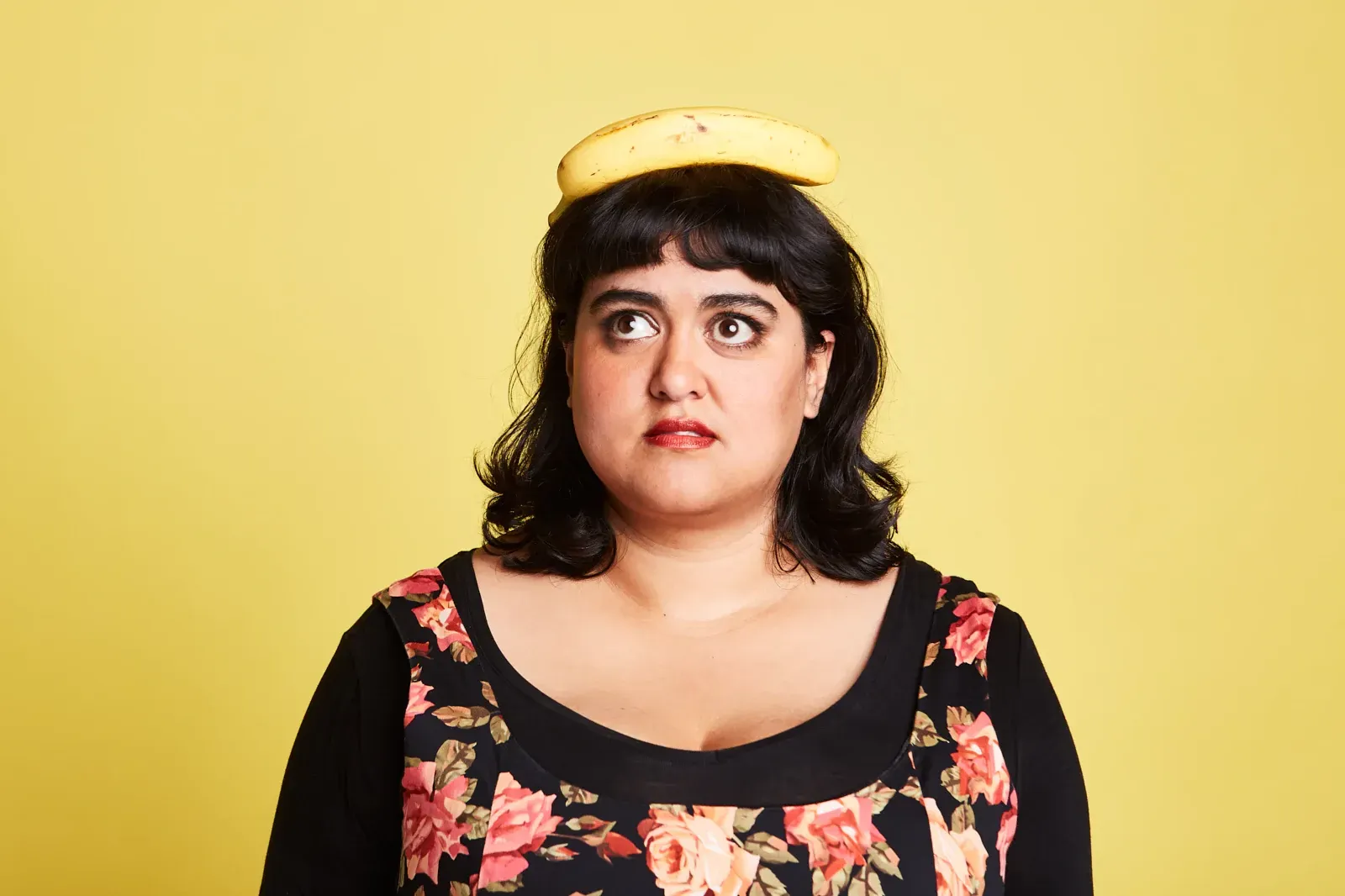The art & comedy of thriving in discomfort
Written by

Angella Dravid wants to make you uncomfortable. But first, she’d like to do that to a few Australians.
The 2018 New Zealand International Comedy Festival (26 April – 20 May) comes on the heels of Melbourne’s, where she’s currently featuring her successful show ‘Down The Rabbit Hole’. In Auckland Angella will introduce new material – in the debut season of ‘Barceloner’.
What’s it about? you ask? That’s not what this story is about, we say (read: Angella doesn’t want to give it away just yet – we suggest you book a ticket to her show).
This story is about what happens when we get comfortable with taking risk. Because if we’re going make good art, risk is something we need to get comfy with.
We thought we could learn a thing or two from Angella, who took some seriously big risks in her early life that didn’t seem to pay off at the time. When you’re 17 years old, move across the world to marry a man more than twice your age who you met in a classical music chat room, find yourself in such an unhappy marriage that prison feels like an escape then get deported from the UK with a criminal record, what more could go wrong?
To hear Angella’s full backstory, listen to this excellent Radio New Zealand interview with Kathryn Ryan.
Of course, the next step was turning her life story into a stand up comedy act.
The difference between me doing well and me bombing on stage is very little – it really depends on the audience and whether they’re onboard or not
“The difference between me doing well and me bombing on stage is very little – it really depends on the audience and whether they’re onboard or not,” Angella says, a little nonchalant.
What she does care about is making the audience uncomfortable. She says it is ‘an indulgence’.
The enjoyment comes from watching people’s reaction to their discomfort, and while Angella gives the impression of being bewildered or scared by her audience, she’s really using those awkward silences to observe us.
“Some people are cringing, and some people are enjoying the cringe that I’m inflicting on people.
“I enjoy seeing people try to get out of a situation – everyone wants to leave the room and it’s funny because it’s a shared experience. It’s a weird tension that comes from people being scared of silences.
“People come onboard and it becomes a joke – so we can laugh.”
Rounding up the Melbourne International Comedy Festival this week, Angella says she’s never worked so hard. There are back-to-back shows and the audience is “kind of different – they’re really quiet, they don’t know how to take me.”
There are cultural differences. “Their version of deadpan is very energetic, our version is mores subdued. They want laugh very heartily at things and they don’t know how to deal with the silences – New Zealanders like silences, I think.”
Be yourself
Angella started her stand up career by ‘reading poetry and doing maths jokes’ – stuff she describes as ‘absurd’. But after a while she learnt that people enjoyed her real life stories more.
“Doing comedy made me realise I should embrace the quirks that make people feel uncomfortable - rather than try to present myself as what I perceive people want me to be.”
Overcome your discomfort to tell the stories you want to tell, says Angella.
“However you deal with your stress or anxiety and what gives you joy will be great onstage. Most of it is overcoming your own assumptions about what people want – people who respect you will love you and people who don’t, they’re not your audience anyway.”
However you deal with your stress or anxiety and what gives you joy will be great onstage. Most of it is overcoming your own assumptions about what people want – people who respect you will love you and people who don’t, they’re not your audience anyway.
Don’t underestimate the impact your work could have
Angella says that while she still has problems accepting she will not be well-liked by everyone, the catharsis she gets from her work makes that matter less.
The realisation that her work could be cathartic to a wider audience came when she heard stories from other comedians of colour. “I thought, maybe my story is worth telling – whether or not it’s relatable?
“Stories about wanting to fit in, or love, trauma – are always relatable.”
Don’t be afraid
Take a moment to think about the worst possible outcome.
“I don’t think I’ll go back to prison again or get deported again, if I make people feel uncomfortable that’s not the worst that can happen.”
Barceloner will debut as part of the New Zealand International Comedy Festival at Auckland’s Q Theatre, 1-5 May, and Wellington’s Bats Theatre, 15 - 19 May.